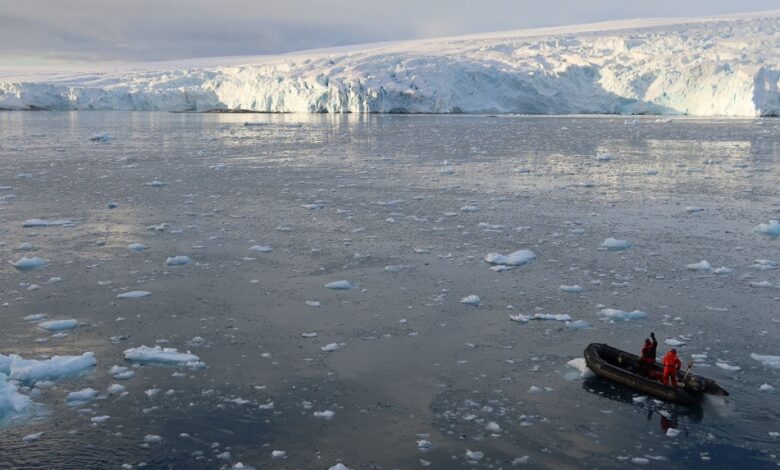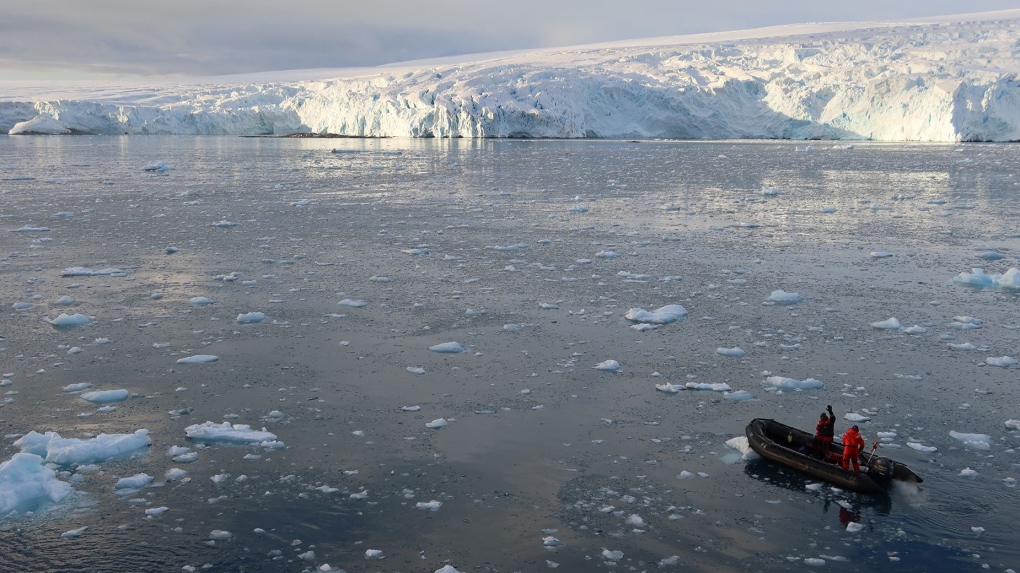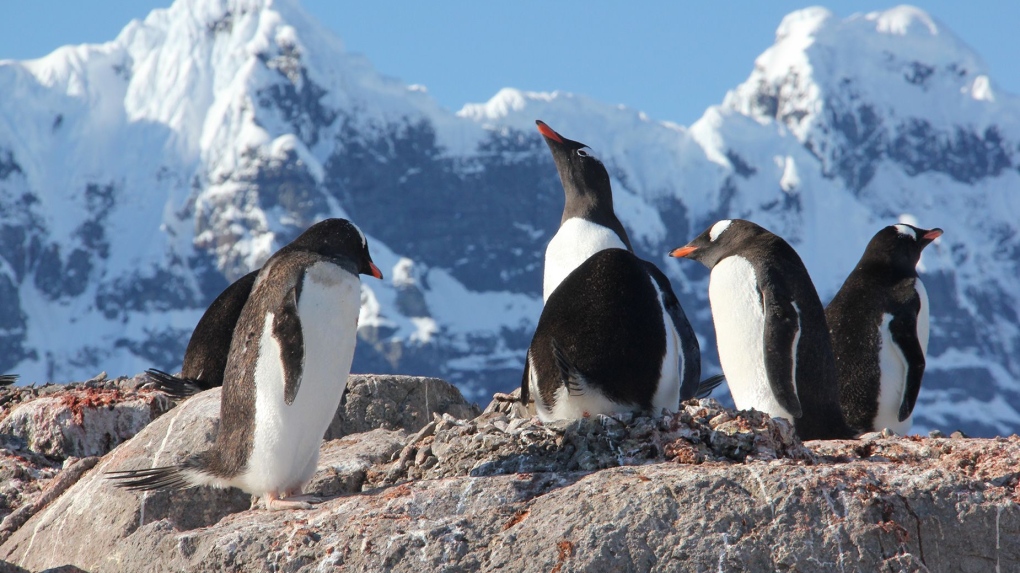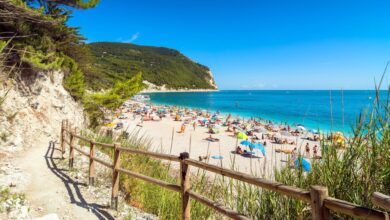What it’s really like to live in Antarctica

A five-month-long slumber party. A college dorm. An introvert’s hell.
Those are just some of the words residents of Antarctica use to describe life in the world’s coldest, most mysterious continent.
In 1959, 12 countries – including Chile, Japan, Australia and the United States – signed the Antarctic Treaty, pledging that the seventh continent would only be used “for peaceful purposes only.” As a result, there are no military bases there, although military planes and ships can bring people and supplies.
That means that only a few thousand humans can say that they have lived in Antarctica.
And yet, despite bunking with strangers, taking 90-second showers and having zero privacy, there are intrepid travelers who believe all the challenges are worth it.
Keri Nelson is one of them.
The Minnesota native first went to the White Continent in 2007 to work as a janitor at McMurdo Base, one of the three U.S. outposts there. Now a veteran of 16 Antarctica seasons, she has done stints at all three stations – in addition to McMurdo, the largest and most active, there are Amundsen-Scott Station at the geographic south pole, and Palmer Station, north of the Antarctic peninsula.
“If I was going to describe it in musical form,” Nelson says, “I would say McMurdo was like gritty, dirty bluegrass and South Pole was like symphony music and Palmer is like really corny, fun pop music.”
 Zodiac boats are one of the more common ways to travel or bring supplies to Antarctic bases. (Keri Nelson via CNN Newsource)
Zodiac boats are one of the more common ways to travel or bring supplies to Antarctic bases. (Keri Nelson via CNN Newsource)
Summer camp for grownups
In the summer months from October to March there can be as many as 1,000 people at McMurdo Base, from scientists to carpenters to dishwashers. Many support staffers have multiple jobs.
For example, Evan Townsend, creator of the Antarctica Flag, worked in the kitchen, tended bar and managed the craft room during his stint there.
“It is an entire town,” Keri Nelson says of McMurdo. “You could go whole seasons and never meet a lot of people there, and it’s just very busy at those stations. It’s just bustle, bustle, bustle all the time.” That’s due to McMurdo’s size as the biggest base, but also due to the rotation of staff, since people will move between other stations or go out on expeditions and research trips throughout the season.
While there are some modern amenities – a room for watching DVDs, a craft room, a gym – the clubhouse feel of the base offers lots of opportunities for socializing. Nelson has organized fashion shows complete with a runway and played music in the “ice bands” that often form during a season.
Just three kilometers (two miles) from McMurdo is New Zealand’s Scott Base, and sometimes staffers will make the trip across Ross Island to visit their US counterparts – joining in on their jam sessions, book club meetings and movie marathons. Some staffers even volunteer to teach classes in yoga, languages or other interests.
“That was my thing that I learned in Antarctica, hip hop dancing and Thai massage,” says Chris Long.
Long, who claims to be from “the most remote living family in New Zealand,” has spent more of his life living off the grid than on it. As a 19-year-old, he took a last-minute gig working in the galley (kitchen) of a Russian ice breaker ship going to Antarctica.
He “absolutely hated” the job, but found his calling along the way.
After those disastrous few months, during which the unforgiving waters of the Southern Ocean regularly sent the ship bobbing at 45-degree angles, Long redirected into a job managing logistics for the scientists at Scott Base and now works as support staff for travelers who visit Antarctica by ship.
It’s an unconventional life, spending half the year going back and forth across the notoriously chaotic waters of the Drake Passage to South America, but Long says he can’t imagine any other way to be.
The other side of the ice
Laura Bullesbach doesn’t see anything of her own experience in the stories of fashion shows and book clubs. Her own Antarctic season, which concluded in March 2024, was more serene. She was one of half-a-dozen people staffing the world’s southernmost post office, UK Antarctic Heritage Trust-administered Port Lockroy.
“The island is the size of a football field, so it’s tiny. And you live in a hut together where there are basically two rooms,” she says.
“We don’t have any running water and therefore no showers, no proper flushing toilets, and you’re always on top of each other.
“When I said goodbye at the airport to one of my colleagues, we hadn’t been without each other since the end of October for longer than maybe what it takes to take a shower on a ship. You’re close friends and you’re roommates and you’re colleagues and it’s everything at once.”
One common misconception, Bullesbach says, is that life on the remote continent is boring. At Port Lockroy there were daily tasks that kept everybody busy, from basic life admin like taking turns cooking meals to more serious tasks like surveying the water for any plastic that may have washed up and keeping track of the island’s penguin colony.
Plus, there’s an educational component. When private, scientific or commercial ships visited Port Lockroy, which is the first scientific base established by the UK in Antarctica, Bullesbach and other team members would go on board to give educational talks, sell souvenirs and pick up mail. But there were perks – they could often use the onboard showers and sometimes, there were fresh fruits and vegetables they could take back to the island to supplement their supply of tinned and dried foods.
Competing for the opportunity to clean up puke
Unless you’re a scientist in a very specialized field, your best bet for living in Antarctica is by applying for a support role at one of the stations.
Nelson was so gung-ho about going to the White Continent that she went to Denver to attend a McMurdo job fair. After initially being rejected for a job as a dishwasher, she emphasized her training as a registered nurse when applying to be a janitor.
One of the interview questions, she says, was “what’s the grossest thing you’ve ever cleaned up?”
It worked. Since that first stint as a cleaner, Nelson has held a variety of Antarctic jobs, eventually working her way up to a station administrator.
The pay was low, but Nelson didn’t care. She wanted the experience of living in Antarctica, and she notes that despite the small paychecks, all meals, room and board, and transport to and from the continent are covered.
But landing an Antarctica job isn’t just about having the right CV. Living in close quarters for long periods requires a certain kind of personality.
“You can be an amazing engineer or scientist, but if you can’t live in a small hut or a small station with three other people or maybe on a station with 40 other people for the summer, then you’re no good for the job,” says Long.
“Doesn’t matter how good you are at the job. Being able to fit in with the team is the most important. You don’t want to make enemies in that kind of environment.”
When Bullesbach reached the final round of interviews for the Port Lockroy jobs, she and other candidates went out to a rural area for what she calls a “selection camp.” There, applicants were put into different teams and given assignments like building a tent while blindfolded. The purpose was two-fold: to measure everyone’s practical skills and abilities while also judging how well they could problem-solve and work with others.
Another consideration for working “on the ice” is what country you’re from and if your country has a base in the Antarctic. Bullesbach is German, but she has the right to work in the UK, which made her eligible for the Port Lockroy job.
However, if you’re not a citizen of a country with an Antarctic program there are still some options to spend time in Antarctica, mostly by working in tourism.
Once you get the Antarctica bug, Long and Nelson say, it’s pretty hard to get rid of. Getting in the first time is difficult, but since so few people have Antarctica work experience it’s easier to keep returning after multiple seasons. One member of Bullesbach’s team, Clare Ballantyne, had a previous season at Port Lockroy under her belt and served as a mentor to some of the first-timers.
“My expertise is living and working in the most uninhabitable places on Earth,” Long says. “[A resident] might be a scientist, very smart person, knows a whole lot about whatever their area of expertise is, but if you send them down to Antarctica, they’re gonna die tomorrow. So you need someone who is good at looking after and training people to live in that environment.”
 Counting penguins is one of the roles Port Lockroy staff have during their time in Antarctica. (UKAHT via CNN Newsource)
Counting penguins is one of the roles Port Lockroy staff have during their time in Antarctica. (UKAHT via CNN Newsource)
Planning for every eventuality
It’s one of the most common questions for someone about to move to Antarctica: what to pack?
For Bullesbach, the answer was “not much.” She and her colleagues were limited to two bags each.
“You have three jumpers, two pairs of trousers, lots of socks, and then that’s kind of enough,” she says. “Then we got to send a box down with some other personal stuff. Any kind of hygiene products we might need, we got to send down beforehand and then everyone brought one or two board games or stuff to keep us all entertained in the evenings.”
Those living at larger and more established camps have the benefit of using what previous residents have left behind. At McMurdo, Nelson says, there was a lending library of books and DVDs, plus gear, clothing and other odds and ends that one might find useful. There were also medical supplies, from basic bandages and gauze to more serious equipment like a defibrillator.
Electronics have also been helpful when it comes to packing for the edge of the world. Bullesbach could just bring her fully stocked Kindle instead of physical books to save space and, thanks to solar panels, there was always enough power to keep it charged. There was internet access at Port Lockroy thanks to Starlink, but the team voted as a group not to use their phones during mealtimes.
Long says he’s also a minimalist. After some trial and error during his earlier seasons, he now has his packing routine down to a science.
“Now I have the gear that I like, so I don’t need to take so many things. I have exactly the pair of salopettes that I like and the warm jacket that I like and the hat that I like. That way, the more you know your gear, the less that you have to think about yourself, the more you can do your job.”
Still, there are risks in choosing to live and work in, as Long puts it, the most uninhabitable place on earth.
At larger camps like McMurdo, there are trained medical professionals on base who can do a wide variety of procedures. But if someone needs a more serious operation or an urgent treatment, the patient will need to wait for a ship or boat to take them to the closest city – which could take anywhere from two to 10 days.
Long gives several examples of serious injuries that happened in Antarctica. In one case, he says a cruise ship vacationer fell on the ice and broke her arm. Luckily, the on-board doctor was able to put her arm in a cast, and the traveler continued the next two weeks of the trip as planned. In a more serious case, a Russian scientist – who was also a medical doctor – realized that his appendix had burst and performed emergency surgery on himself.
“He knew what he was doing and so he knew he was going to die if he didn’t. So he tried and he did it and lived,” says Long. “That’s what you do when there’s no other option.”
Leaving the ice behind
Antarctica can have a powerful spell on the people who visit. Both Nelson and Long say they can’t imagine not spending time there, and Bullesbach was already applying for a second expedition the week after returning from her first. Meanwhile, Nelson has launched a podcast, Antarctica Did That For Me, to share her experiences.
In a fast-paced globalized world where everyone is on their phones all the time, Antarctica offers a rare opportunity to live a different kind of life.
However, climate change is already affecting the seventh continent, and not only by shrinking glaciers. More and more countries who weren’t part of the initial Antarctic Treaty, namely China, are trying to lay claim to part of it as the planet warms.
“[Antarctica] is set aside by treaty right now for science and peace and projects that benefit humanity. It’s one of the things I love personally about working in the program. It’s why I’m an Antarctica devotee,” says Nelson.
“Stuff just keeps being taken from Antarctica. Information, ice, resources like seals and whales and fish,” Klaus Dodds, professor of Geopolitics at the University of London, told CNN in 2021. “Antarctica’s fragility, I think, represents the fragility of the wider world. I think the Antarctic represents, in essence, not just the idealism that the treaty represents, but it also represents the supreme contradictory nature of humanity more generally.”
Nelson says that Antarctica gives her a sense of peace that she can’t replicate anywhere else.
“When I’m there, I can feel exactly as tiny as I am in this universe, no smaller than I am in this universe, but no bigger.”




